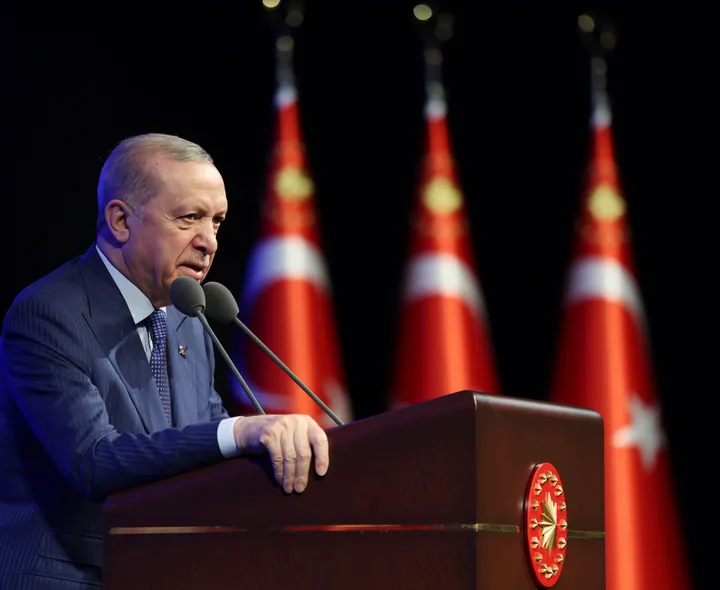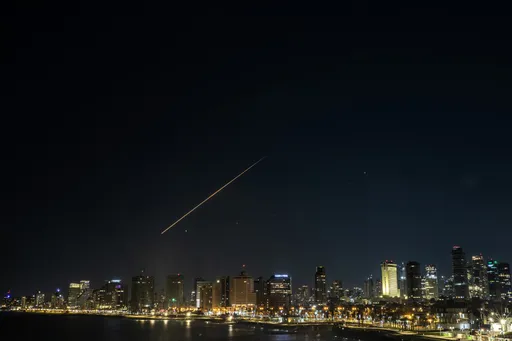TUNIS — The 2011 revolution in Tunisia started a wave of political uprisings. That tide of discontent swelled into the Arab Spring. But seven years on, the country’s optimism is floundering. Corruption remains endemic, unemployment is rising and wages are falling.
“There is nothing that encourages you to stay in my country. There are no jobs, nothing,” Monir Nawar, who lives in the outer suburbs of Tunisia's capital Tunis, told TRT World.
Nawar's younger brothers paid people smugglers to take them to Italy last year. Now, Nawar is waiting for his turn.
He works as a waiter to save up the cash he needs to pay for his journey. It costs about $2,500.
“In Italy there will be hope, better than here," Nawar said. "There 50 percent hope is better than one percent here. Young people in Tunisia are marginalised. There is no employment. We had a revolution for employment, for young people to work. But you can see that all young people are unemployed.”
Nawar is not alone. Thousands of young Tunisians are trying to leave the country in search of a better future. They think the country, and its revolution, have let them down.
Rising unemployment
Unemployment has been one of the most serious problems in Tunisia since the uprising in 2011. Almost 30 percent of university graduates are unemployed. That, coupled with record low wages, has created a sense of hopelessness in the country, sparking a wave of migration, destined for Europe.
In 2016, more than 1,200 Tunisians reached Italy by boat. And last year, this number rose to more than 6,000 people. In the first half of 2018, more than 3,000 Tunisians made the journey to Italy.
“After the revolution people thought that their life would change, but nothing changed. They see that they have no hope in Tunisia.” said Imed Soltani, the head of an association supporting the families of those who’ve gone missing, people trying to reach Europe.
Soltani started the association La Terre Pour Tous after his two nephews went missing at sea. His association estimates about 3,000 Tunisians are unaccounted for after boarding heading to Italy.
He says the only solution is education. He is calling on the Tunisian government to be more active in poorer communities and raise awareness that Europe is not the goldmine they may think it is.
Monir Narwa knows just how risky the journey can be. His two brothers almost drowned when their boat capsized in the Mediterranean. They were pulled to safety by the Italian coastguard and are now in processing centres in Italy. But their close call hasn’t changed Narwa's mind.
“I have nothing to be afraid of because in my country, I’m pretty much dead anyway," he said. "I’m not living. At least there, in Italy, there’s hope. There will be something encouraging me to live.”
Corruption: 'Cancer of the country'
Unemployment is not the only economic problem weighing heavily on Tunisia. Corruption, which was the main driving force of the 2011 uprising against the Ben Ali regime, remains a problem.
Tunisians call corruption their country's cancer, and it infiltrates every aspect of their lives. In World Bank figures, corruption costs the Tunisian economy two percent of its annual GDP, that’s about $1 billion.
According to independent surveys, locals consider corruption to be worse now than before the revolution. Everything from electrical goods to fuel and food is smuggled into the country illegally, and then bought and sold "off the books.”
“In Tunisia now, there are chaotic price rises. The reality is that ordinary people with limited incomes are getting poorer – and they’re being forced to use underground markets and that’s a problem,” Dr Sarah Yerges from Carnegie Institute told TRT World.
“What this means is that there is really a large amount of money that is just not available for the Tunisian government. They can’t spend it on services. They can’t provide for the people because this money is not going through the taxation system.”
Government actions to fight corruption
Last year Prime Minister Youssef Chahed declared war against corruption. One of the biggest smuggler barons, Chafik Jarraya, was arrested and charged with treason.
However, according to Leila Weslati Bouslah who is a member of the parliamentary anti-corruption committee, the prime minister's war has barely started yet. She says there is no strong political will to fight corruption and believes a cultural change is what’s needed.
“The change requires another generation. A generation which understands that fighting corruption should be as natural as breathing.”
Tourism returns
There is a glimmer of hope on the horizon, though. The return of international tourists and foreign investors are giving the economy a much-needed boost.
Twin terrorist attacks in 2015 almost decimated the country’s tourism industry. The Tunisian government says the resulting downturn cost the country $4 billion.
“Business was already suffering after the revolution and the attack was the final blow. It was worse than the Gulf War in the 1990s. All the tourists from Europe deserted the country. Tourism is now recovering.” says Sofiane Baklouti, General Manager of Seabel Alhambra Hotel in Sousse.
Official figures show tourist revenues have climbed 40 percent this year, reaching $522 million. The return of European visitors played a big part in that – up 60 percent compared to last year.
“All hotels are full. Finally, it’s a good season. The low season later this year is also expected to be strong. People have more and more confidence in Tunisia. They are no longer afraid,” Baklouti said.
The government hopes the uptick will inspire more foreign investment and help create more jobs. But for now, that’s not enough to stop thousands of young Tunisians risking their lives on the promise of a better future abroad.























